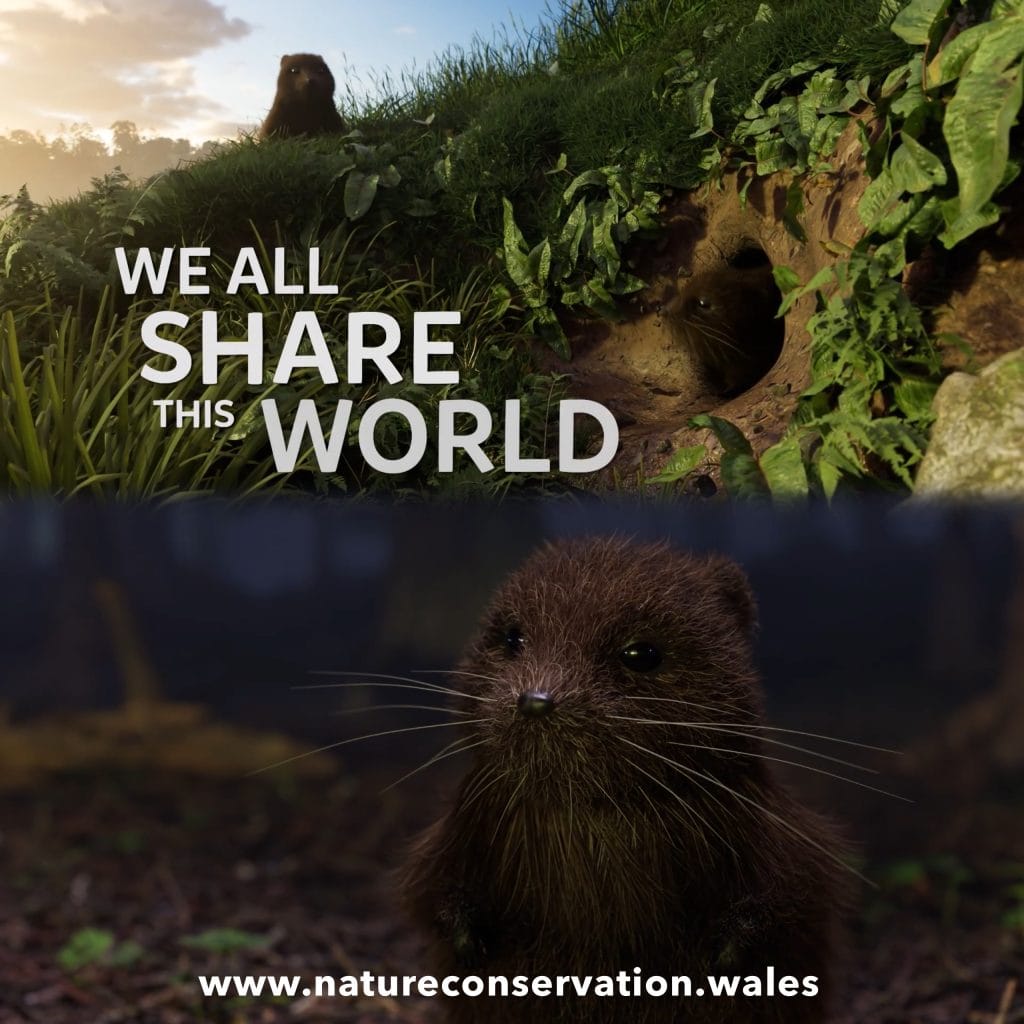
Here’s a fantastic animation created for Initiative for Nature Conservation Cymru with music composed by the superb Brolly Brollyman!
I loved score mixing Brolly’s music accompanying this little character. Have a watch and listen below!
Help Save Our Upland Water Voles
More info about the project from Initiative for Nature Conservation Cymru:
Water Voles are now one of the rarest mammal species in the whole of Wales. They were once a common sight along our rivers and wetland habitats, but in just 70 years they have disappeared from over 90% of their former range. If we don’t do anything to help our Water Voles, then it is very likely that the entire species will go extinct in Wales soon.
Water Vole populations have suffered greatly in recent decades due to loss of their habitat. However, the biggest threat to their survival is the presence of the non-native American Mink, which can consume entire colonies of Water Voles in just a few days.
We Have a Chance. Until recently it was believed that Water Voles were already extinct in the South Wales Valleys. However, surveys undertaken in the last few years have found Water Voles in our upland habitats, particularly around Glyncorrwg, Blaencwm, Treherbert and Maerdy.
These upland habitats such as bogs, moorland and wet heathland are harsh environments for Water Voles and their survival rate is low. The good news is that American Mink tend to stay away from our uplands. These landscapes may hold the key to the Water Voles long-term survival in Wales.
What Are We Doing About it? The Initiative for Nature Conservation Cymru (INCC) is a wildlife charity dedicated to nature in Wales. Thanks to funding from the Pen y Cymoedd Community Fund, we have been working with partners and local volunteers to find out more about our upland Water Voles. The more we know about Water Voles in upland Wales, the more we can do to safeguard them and their habitat in future.
Our findings have already shown that the uplands of the Rhondda and Neath Port Talbot can now be recognised as one of the most significant regions for Water Voles in Wales.
Next Steps. We have already discovered 20 additional Water Vole colonies in the upland valleys, but there is still more work to be done in this three-year project. The next stage will be to see whether all these different colonies are connected to each other as one big metapopulation, or if they are small, isolated colonies which are more vulnerable and prone to local extinction.
Once we have undertaken all the research and evaluated the results, we can put together a clear guide on how to protect Water Voles in our upland habitats and save them from extinction. “We have lost so many of our Water Voles in Wales over the past fifty years or so. If we don’t do something urgently, we may end up losing this wonderful animal for good”. Projects like this, that bring together conservationists, and local communities give us hope that we can save the Water Vole and lots of other species and their habitats as well”.


